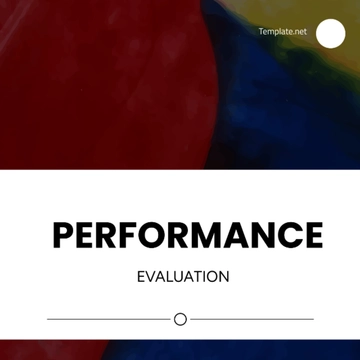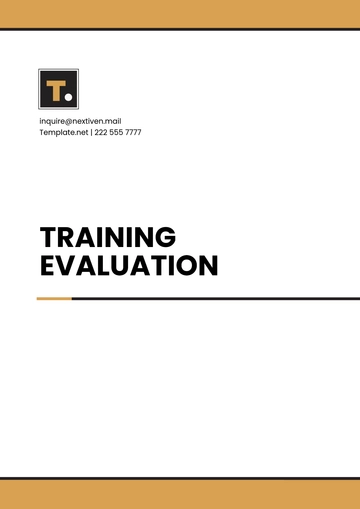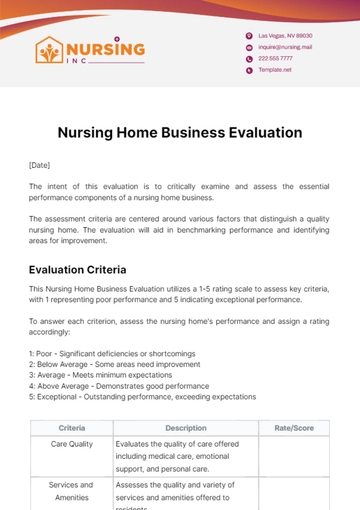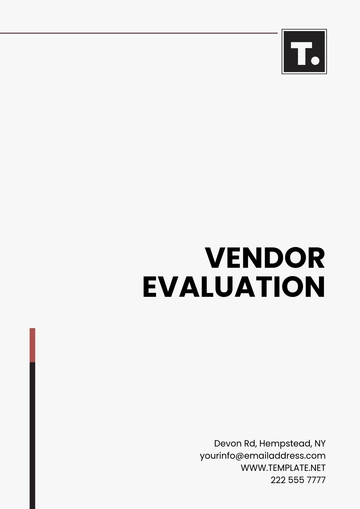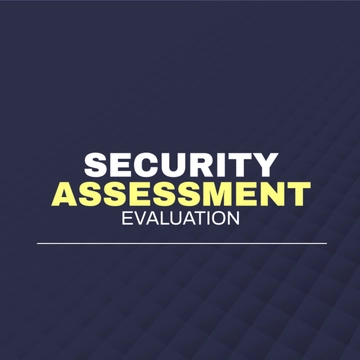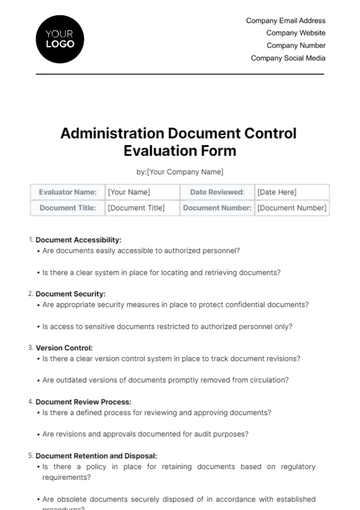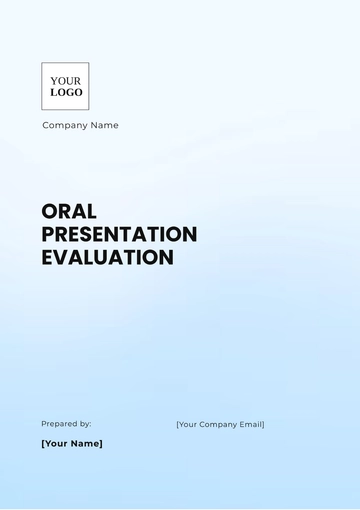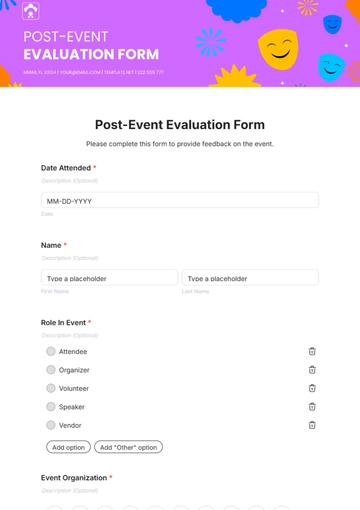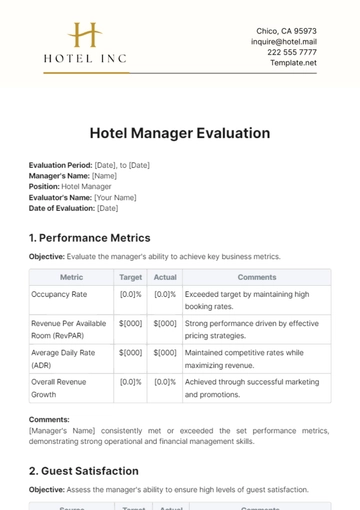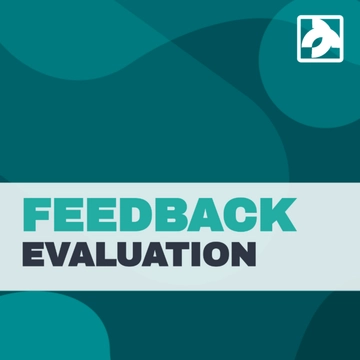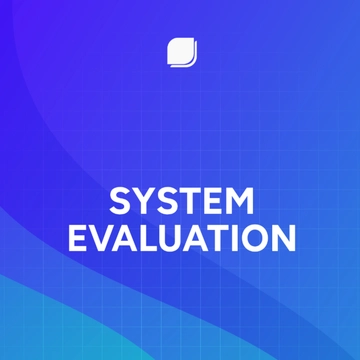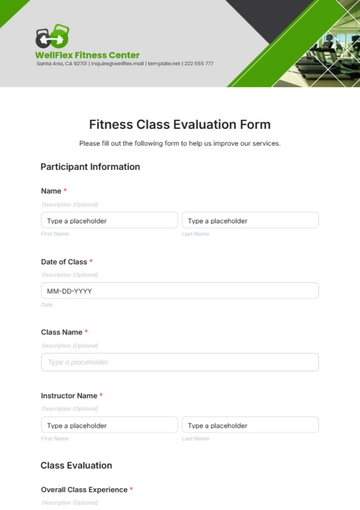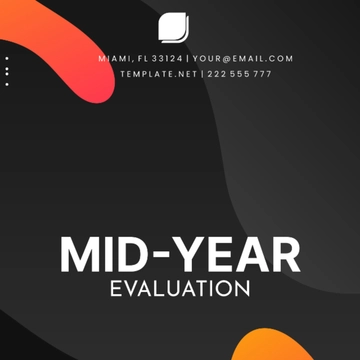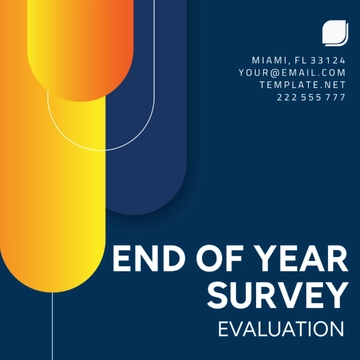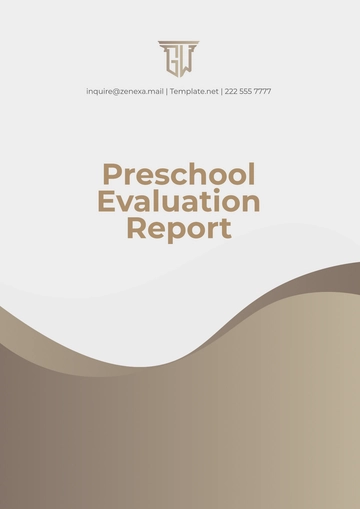Free Research Evaluation Report
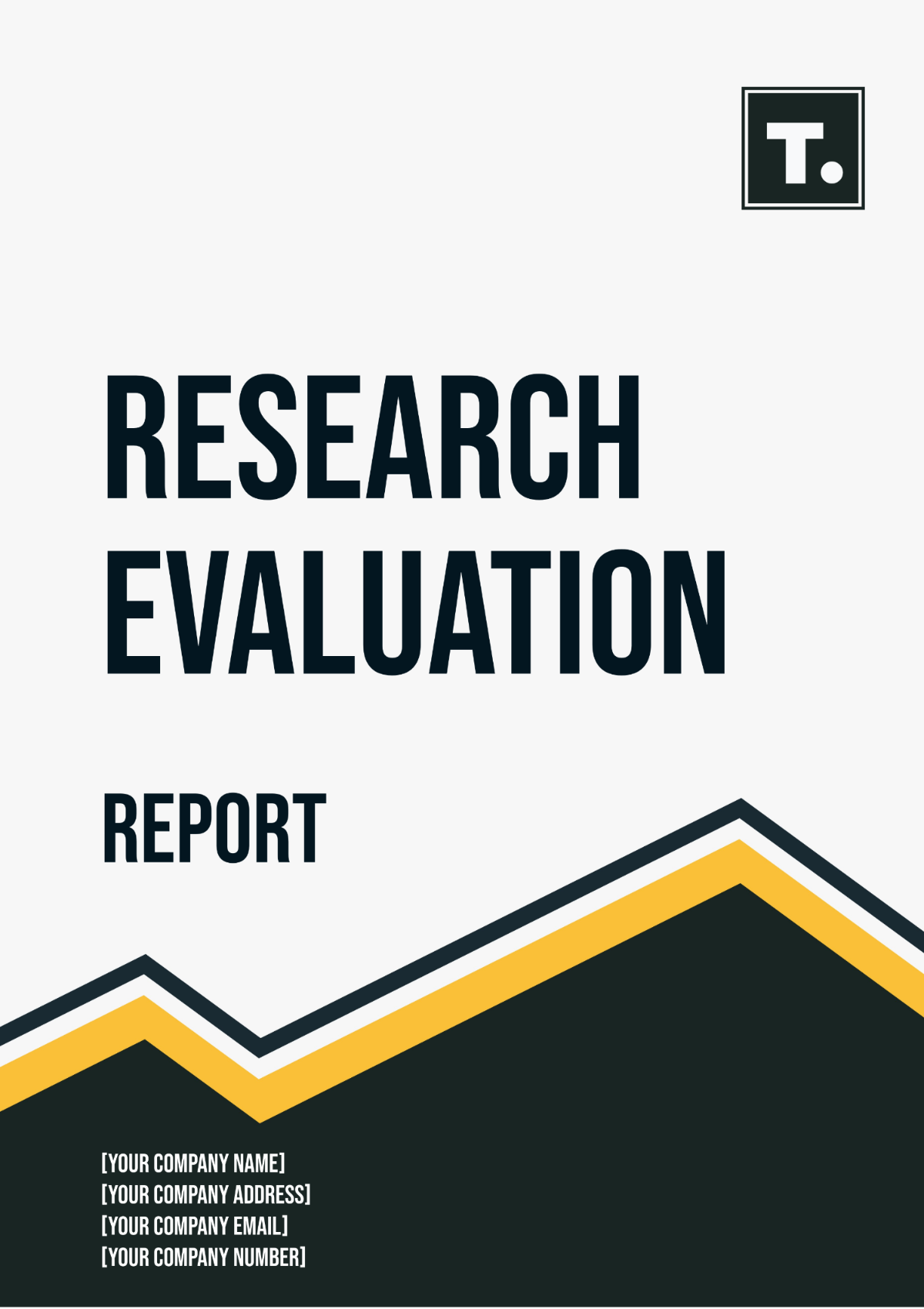
Author(s): [Your Name]
Date: January 5, 2061
I. Executive Summary
This Research Evaluation Report presents an in-depth analysis of the findings obtained from our extensive study on the impact of artificial intelligence (AI) in the healthcare industry. The objective was to assess the influence of AI on healthcare delivery, identify key trends, and suggest actionable recommendations. This report is tailored for stakeholders looking to understand the implications of the research findings on strategic decision-making.
II. Introduction
A. Background
The study was initiated to explore the potential advancements in the field of healthcare following the surge in AI technologies. The research was conducted over a period of two years, from January 2058 to December 2059, and encompassed diverse methodologies to ensure comprehensive insights.
B. Objectives
To understand the current state and future prospects of AI in healthcare.
To evaluate the impact and implications for healthcare providers, patients, and policymakers.
To formulate practical recommendations for future initiatives.
III. Methodology
A. Research Design
A combination of qualitative and quantitative methods was employed, including surveys, interviews, and observational studies. The sample size consisted of 500 participants, including healthcare professionals, AI developers, and patients, selected based on predetermined criteria.
B. Data Collection
Data were collected through multiple channels:
Online Surveys: Distributed to 300 healthcare professionals and patients.
In-depth Interviews: Conducted with 100 AI developers and healthcare executives.
Focus Groups: Organized with 100 participants from various stakeholder groups.
C. Data Analysis
The collected data were analyzed using statistical tools such as SPSS for quantitative data and thematic analysis for qualitative data to extract meaningful patterns and correlations.
IV. Findings
A. Key Insights
Significant growth in AI adoption in the healthcare industry.
Major trends observed include increased use of AI for diagnostic purposes and personalized treatment plans.
Challenges faced by healthcare providers include data privacy concerns and the need for regulatory frameworks.
B. Comparative Analysis
A comparative analysis with similar previous studies revealed unique trends and deviations.
Parameter | Year 2050 | Year 2060 |
|---|---|---|
Growth Rate | 5% | 10% |
Market Share | 20% | 35% |
V. Discussion
A. Interpretation of Findings
The findings suggest a robust growth trajectory for the healthcare sector driven by innovations and increasing demand for AI-powered solutions. The challenges highlighted need to be addressed to sustain long-term growth.
B. Implications for Stakeholders
The results indicate potential opportunities for healthcare providers, AI developers, and policymakers to invest in specific areas. Strategic initiatives should focus on mitigating identified challenges to leverage the full potential of emerging trends.
VI. Conclusion and Recommendations
A. Conclusion
The research concludes that AI in healthcare holds significant promise for the future, contingent upon addressing the current limitations. The comprehensive evaluation underscores the vitality of strategic investments and policy reforms.
B. Recommendations
Implement technological advancements to boost efficiency.
Address regulatory and policy challenges.
Encourage stakeholder collaboration and partnerships.
VII. References
Smith, J. (2059). "The Role of Artificial Intelligence in Modern Healthcare." Journal of Health Informatics, 15(4), 123-145.
Johnson, L. & Wang, Y. (2058). "AI and Healthcare: Emerging Trends and Impacts." International Journal of Medical Sciences, 22(7), 234-250.
Patel, R. (2059). "Data Privacy Concerns in AI-Driven Healthcare." Healthcare Data Security, 10(2), 98-112.
VIII. Appendices
Appendix A: Detailed Methodology
Appendix B: Survey Instruments
Appendix C: Additional Data Tables
Appendix D: Regulatory Frameworks
- 100% Customizable, free editor
- Access 1 Million+ Templates, photo’s & graphics
- Download or share as a template
- Click and replace photos, graphics, text, backgrounds
- Resize, crop, AI write & more
- Access advanced editor
Evaluate research outcomes with precision using Template.net's Research Evaluation Report Template. This customizable and editable template in our AI Editor Tool enables you to meticulously assess and document research findings. This template provides a structured approach to ensure that your evaluations are comprehensive and insightful, highlighting key outcomes and recommendations.

